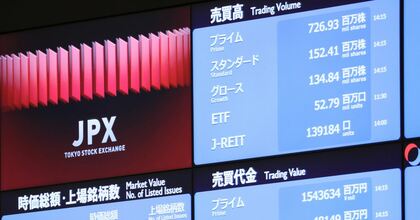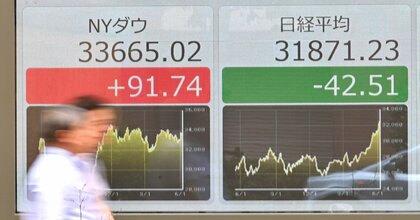Originally published in Japanese on March 13, 2024
Momentum on governance
On January 15, 2024, the Tokyo Stock Exchange (TSE) published its initial list of companies that had disclosed actions taken or to be taken as management became conscious of the cost of capital and stock prices. As of the end of December 2023, 49% of companies in the Prime Market and 19% in the Standard Market had taken or were considering taking action, up from a corresponding 31% and 14%, respectively, last July. This indicates that companies are increasingly complying with the TSE’s March 2023 call for improvement in the cost of capital. We think continued monitoring by the TSE could see governance in Japan evolve in earnest.
The TSE requires Prime- and Standard-listed companies to aim for a price-to-book ratio (P/B) of at least 1x, and we expect companies' medium-term business plans and market dialogue in 2024 and beyond to place greater emphasis on growth, profitability, sustainability, and improved governance. This will result in a continued tailwind for share price performance.
Disclosure among Prime-listed companies with a P/B of less than 1x and market capitalization of 100 billion yen ($638 million at current exchange rates) or greater was 78% at the end of December 2023, up from 45% in July 2023. We think this shows these companies are reviewing their situation and working to implement management awareness of the cost of capital and stock price, and also proceeding with the related disclosures with a sense of speed. Standard-listed companies meanwhile lagged Prime-listed companies’ improvement to 49% disclosures at around 19% (including those considering action) as of the end of December 2023.
The TSE compiled its list based solely on whether companies’ most recent corporate governance report clearly states that they have "disclosed" or are "considering" measures to achieve cost-of-capital and stock-price conscious management. Even if a company disclosed measures to improve the cost of capital during 2023, it may have been left off the TSE’s list if the measures were not reflected in the corporate governance report. We, therefore, think actual disclosure may go beyond what the list indicates and look to clarify this at upcoming annual general meetings (AGMs).
On February 1, the TSE published a report discussing how companies can raise management awareness of the cost of capital and stock price, as it had called for in March 2023. The report is based on discussions between the TSE and domestic and foreign investors (over 90 companies). It also includes examples of companies meeting investor expectations in this area. From a global environmental, social, and governance (ESG) perspective, we think ESG investment could be an effective strategy in 2024 and believe governance could be a game-changer in Japan. We are encouraged by the TSE disclosing examples of 29 companies that investors are positive about from this perspective as well as the gaps between management and investor thinking, as we think this could help Japanese companies increase corporate value over the longer term and achieve sustained growth.
Specifically, the TSE conducted interviews with over 90 investors (approximately 30% domestic, 70% foreign) beginning April 2023, particularly investors (such as active funds) prioritizing long-term improvement in corporate value. Its report concludes that realizing cost-of-capital and stock-price conscious management requires 1) analysis and evaluation of the current situation, 2) the formulation and disclosure of initiatives, and 3) the implementation of improvement measures and dialogue with shareholders and other investors. The TSE will analyze progress at least once a year and provide updates.
Below, we share a sample of investor views on companies regarded as successful in this context.
Inpex Corporation (1605): Presents a series of data in an easy-to-understand manner, including an analysis of the current situation, the company’s intended direction, and specific initiatives. It also clearly commits to keeping the return on invested capital above the weighted average cost of capital, pointing to accelerating efforts to increase corporate value.
Mitsui Chemical (4183): Steadily implementing structural reforms, including a review of its business portfolio, and stated initiatives are highly persuasive. Top management frequently communicates with the market, and investors feel their voices are being heard.
Marui Group (8252): Despite P/B being above 1x, management is still working on further improvement, disclosing its “target balance sheet” in line with business structure innovation along with a segment breakdown.
Mitsubishi UFJ Financial Group (8306): Provides an easy-to-understand explanation of company direction using logic trees, segment disclosure, comparative analysis of performance vs. global peers, etc. Also displays sincerity toward the market, including proactively arranging opportunities for management and outside directors to engage in dialogue with investors in Japan and overseas.
Seino Holdings (9076): Provides disclosure that deepens dialogue, such as using logic trees to demonstrate how individual initiatives lead to higher corporate value. Seen as working to accelerate corporate value enhancement, including by using an employee stock ownership plan to incentivize employees with longer-term gains in corporate value.
We view the TSE’s February 1 report as a more in-depth analysis than its January publication, which looked only at whether companies had disclosed relevant action (or consideration of same) in their corporate governance reporting. We think the emerging emphasis on the details of disclosure (rather than its mere existence) and what domestic and foreign investors expect here, along with specific examples of both successes (29 companies) and failures, could help corporate management and directors pursue reforms and engage in dialogue with shareholders and investors. Voting rights and engagement strategies factor heavily in Japan's ESG investment.
Japan might be amending its corporate governance code in 2024, and we will look for companies’ medium-term business plans and dialogue with equity markets to show an increased emphasis on growth, profitability, sustainability, and governance. We think momentum toward better governance in Japan could underpin the share-price performance of individual companies. We expect more shareholder proposals to be submitted ahead of AGMs going forward, triggered by the TSE initiatives.
Tomohiko Sano joined J.P. Morgan’s Equity Research Department in 2015, covering major Japanese machinery companies. He became Co-head of Japan Equity Research in 2022. He has earned a Certificate of CFA Investing in ESG.











